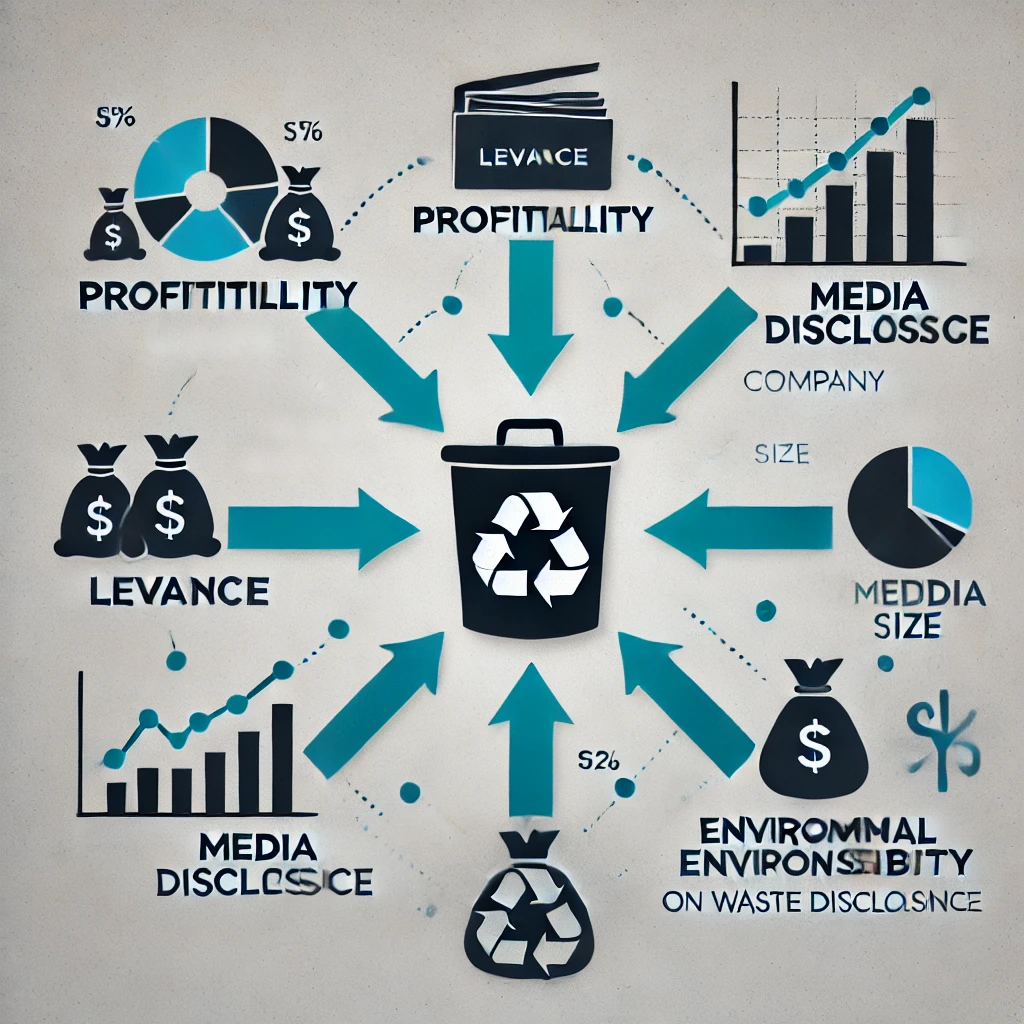The Effect of Profitability, Leverage, Media Disclosure, and Company Size on Waste Disclosure in Mining and Oil Palm Plantation Companies on the IDX (2017-2018)

Published 2025-02-13
Keywords
- Waste Disclosure,
- Profitability,
- Leverage,
- Media Exposure,
- Company Size
- Environmental Reporting,
- Corporate Social Responsibility ...More
Copyright (c) 2025 Herlina Indra Widiansi (Author)

This work is licensed under a Creative Commons Attribution 4.0 International License.
Abstract
This study aims to analyze the effect of profitability, leverage, media disclosure, and company size on waste disclosure in mining and oil palm plantation companies listed on the Indonesia Stock Exchange (IDX) from 2017 to 2018. Using a quantitative approach, this study employs multiple linear regression analysis on 96 observations obtained through purposive sampling. The findings indicate that profitability and leverage have a negative effect on waste disclosure, suggesting that companies with higher profits and debt levels tend to limit their environmental transparency. Conversely, media disclosure and company size positively influence waste disclosure, highlighting the role of public communication and company scale in promoting environmental accountability. The results imply that greater transparency in waste management can enhance corporate legitimacy and investor confidence. This research contributes to the discourse on corporate social responsibility, emphasizing the importance of financial and external factors in environmental disclosure.
Downloads
References
- Badria, N., Sukoharsono, E.G., & Purwanti, L. (2021). Business sustainability and pentuple bottom line: Building the hierarchical pyramid of the pentuple bottom line. International Journal of Research in Business and Social Science (2147- 4478), 10(3), 123–131. https://doi.org/10.20525/ijrbs.v10i3.1156
- Baeshen, Y., Soomro, YA, & Bhutto, MY (2021). Determinants of Green Innovation to Achieve Sustainable Business Performance: Evidence From SMEs. Frontiers in Psychology, 12(November). https://doi.org/10.3389/fpsyg.2021.767968
- Jaya, IMLM, & Padilla, MAE (2024). Tax Carbon Policy: Momentum to Accelerate Indonesia's Sustainable Economic Growth Towards Green Economy. In Green Economy and Renewable Energy Transitions for Sustainable Development (pp. 171–183). IGI Global Publishing.
- Jitmaneeroj, B. (2018). A latent variable analysis of corporate social responsibility and firm value. Managerial Finance, 44(4), 478–494. https://doi.org/10.1108/MF-08-2017-0303
- Maharani, P., & Handayani, S. (2021). The Influence of Green Accounting on the Value of Mining Sector Companies. 5(1), 220–231.
- Razafindrambinina, D. & AS (2014). The Impact of Strategic Corporate Social Responsibility on Operating Performance: An Investigation Using Data Envelopment Analysis in Indonesia Annisa Sabran - Marketing Management, Prasetiya Mulya Business School,. Journal of Business Studies Quarterly, 6(1), 1–12.
- Wahyutama, NRI (2016). The Influence of Company Size, Profitability, Leverage and Media Exposure on Corporate Social Responsibility Disclosure. Student Scientific Article 2016, University of Jember, 1–8.
- Wijaya, E., Chandra, T., Hafni, L., & Ng, M. (2022). The Role of Environmental Performance in Realizing Green Economy Development and Its Impact on the Financial Performance of Mining Companies. RAK Journal (Financial Accounting Research), 7(2), 215–230.
